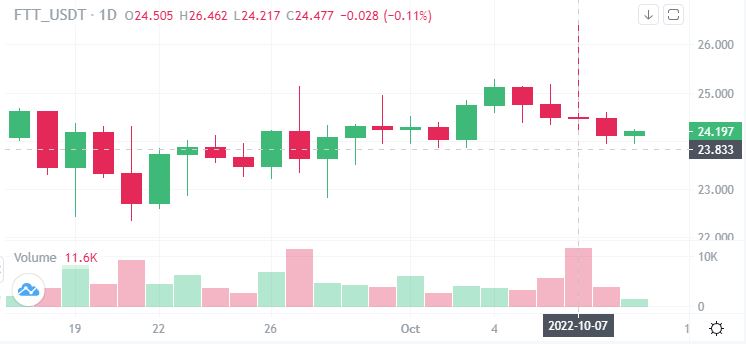A few years ago, it was relatively easy to earn multiple bucks of cryptocurrency assets – be it Bitcoin, Monero, and others through a process called “Mining”.
In fact, Bitcoin miners were rewarded 50 BTC for each block (the bulk of transactions) validated, during the first four years of Bitcoin’s existence – which has been reduced to 6.25 BTC per block mined, as of now.
The reduction is a result of an event called ‘Bitcoin Halving’ that happens every four years or 210,000 blocks – which aims to foster scarcity by halving the amount of Bitcoin that goes into circulation.
However, that is not our concern now, let’s talk about crypto mining in general (not just Bitcoin Mining).
It seems crypto mining is no more profitable due to market downturn and other factors, which begs the question: “Is crypto mining dead?”.
In this article, you’ll discover if crypto mining is dead or not, and what you need to do to become a profitable crypto miner.
So, let’s first understand what crypto mining is, and if it’s legal or not.
What Is Crypto Mining?
Crypto mining is the process of verifying transactions and adding them to the public ledger or blockchain of a particular cryptocurrency network.
It can be compared to searching for buried treasure. Just as a treasure hunter uses specialized equipment to dig through the earth to find hidden gold, crypto miners use specialized hardware to solve complex mathematical equations to validate and process transactions on a cryptocurrency network.
Just as you know, the more powerful the equipment, the higher the chances of finding the treasure – that’s also how it is with receiving cryptocurrency rewards.
So, cryptocurrency networks, such as Bitcoin, rely on a decentralized system where transactions are validated and recorded by a network of computers called nodes.
Thus, Crypto miners play a crucial role in this network by validating and processing transactions, and in return, they receive cryptocurrency as a reward.
Is Crypto Mining Legal?
The short answer is that crypto mining is legal in most countries.
However, there are certain countries where the practice is illegal or heavily regulated.
At the same time, It might be legal in a country while it’s banned in some states of that country.
In the United States, for example, crypto mining is legal, but it’s banned in New York state in 2022.
In addition, it is illegal in some countries such as China due to concerns over energy usage.
Although, the high energy consumption required for mining cryptocurrencies can indeed harm the environment.
Overall, the legality of crypto mining is a complex issue that depends on a variety of factors.
The practice may be generally legal in most countries, but it is important to be aware of local regulations and ethical considerations when engaging in crypto-mining activities.
Is Crypto Mining Dead?
Crypto mining is not dead, even though the reward is very low currently compared to a few years ago – due to the decline in the crypto assets price that we can also refer to as “bear market”
But, that’s not even the major issue, the biggest challenge is the increasing difficulty of mining new coins.
As more miners join the network, the competition for mining rewards becomes more intense, and it can be harder to make a profit.
Just as you know; the cost of electricity and hardware is alarming, and it can make mining an expensive proposition – which could make some miners struggle to break even.
However, think about it for a second, if we say crypto mining is dead; does it mean Bitcoin (the King of cryptocurrency) is also dead?
So, crypto mining shouldn’t necessarily be regarded as dead because of its currency challenge and threats.
Will Crypto Mining Die?
No, crypto mining will not die, but it might be close to dying based on some factors, such as the growing environmental concerns associated with the process.
The mining process consumes a significant amount of electricity, leading to a significant carbon footprint.
Why did I say it might be close to dying? It’s because countries are becoming more conscious of environmental sustainability, and the crypto-mining process has been under scrutiny,
As we’ve explained earlier, governments are already imposing regulations on crypto mining, while some governments even banned the operation.
So, what do you think will happen if there’s no space for these machines to facilitate the mining process?
Wait, before you think of any consequence of that; I want you to know that there’s an exception.
It’s safe to say that cryptocurrencies, especially Bitcoin, have become increasingly popular over the years. More and more businesses are accepting them as a mode of payment.
In fact, institutional investors are heavily investing in Bitcoin. A good example is MicroStrategy’s $4.17B investment in Bitcoin at an average price of $29,803 per Bitcoin.
With this, there will always be a demand for the validation of transactions on the blockchain network, which is what mining does.
So, it means that these top institutional investors will always fight against any threat that may hinder the Bitcoin mining operation.
Moreover, while some countries are against crypto’s existence (even though they can’t stop it). There are also many countries such as the United Arab Emirates, El-Savadiour, etc., supporting the Blockchain movement.
Hence, these countries would be interested in providing spaces for crypto mining – even though it might be regulated.
Is Any Crypto Mining Still Profitable?
The answer to this question is not as straightforward as one may think. It depends on several factors, such as the cost of electricity, the price of cryptocurrencies, the mining hardware used, and the mining difficulty.
In the early days of crypto mining, when Bitcoin was still in its infancy, it was easy to mine the cryptocurrency using a simple computer CPU.
However, as the mining difficulty increased, people started investing in more powerful hardware. For example, Graphics Processing Units (GPUs) and Application-Specific Integrated Circuits (ASICs).
Today, mining cryptocurrencies using a simple computer CPU is no longer profitable. The mining difficulty has increased significantly, making it impossible for small-scale miners to compete with larger mining farms.
However, with the right hardware and electricity cost, mining can still be profitable.
Another cryptocurrency that is also profitable to mine is Monero – this cryptocurrency has lower mining difficulties, making them more accessible to smaller miners.
However, the profitability of mining depends on the cost of electricity in your region. Mining requires a significant amount of electricity, and if the electricity cost is too high, it may not be profitable to mine.
In addition, the price of cryptocurrencies is volatile and can change at any moment. Therefore, it’s essential to keep an eye on the price of the cryptocurrency you are mining to ensure that it’s still profitable.
Is Crypto Mining On The Decline?
Yes, crypto mining is on a drastic decline, and one of the main reasons is the decrease in the value of cryptocurrencies.
Bitcoin, for example, has seen a significant decline in its value since its peak at $69,000. This made mining less profitable.
Conclusion
Indeed, the landscape of crypto mining has certainly changed over the past few years. However, it would be inaccurate to declare it dead.
The days of easily mining Bitcoin with a standard computer are long gone. However, there are still plenty of opportunities to profit from mining cryptocurrencies.
With new mining algorithms, hardware improvements, and the continued growth of the crypto industry, many factors suggest that crypto mining will remain active and profitable for years to come.
Personal Note From MEXC Team
Check out our MEXC trading page and find out what we have to offer! You can learn more about cryptocurrency industry news. There are also a ton of interesting articles to get you up to speed with the crypto world. Lastly, join our MEXC Creators project and share your opinion about everything crypto! Happy trading!
Join MEXC and Get up to $10,000 Bonus!
Sign Up

